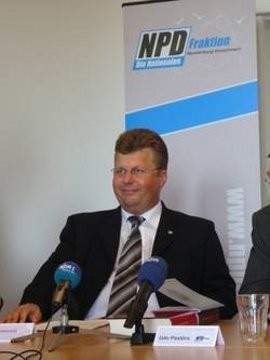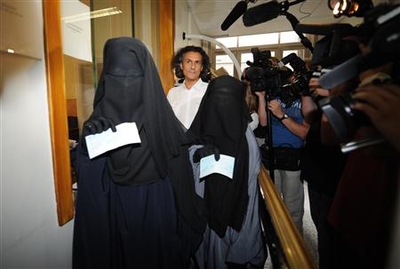 Deputy Minister Ayoob Kara met with Swedish-German millionaire Patrik Brinkmann who has ties with German neo-Nazi groups in Berlin over the weekend,Yedioth Ahronoth reported.
Deputy Minister Ayoob Kara met with Swedish-German millionaire Patrik Brinkmann who has ties with German neo-Nazi groups in Berlin over the weekend,Yedioth Ahronoth reported.
Brinkmann, who is trying to establish a far-right anti-Islamic party in Germany claims he is not an anti-Semite, however his previous close contacts with the German neo-Nazi party (NPD) and his past membership in another neo-Nazi party raise questions regarding his ideology.
Brinkmann, 44, made his fortune in the Swedish real estate business in the 1980s before becoming mixed in tax problems in his home country. As legal battles were going on he used the majority of his finances for the establishment of two research foundations which became closely affiliated with far-right and neo-Nazi elements in Germany.
The millionaire later began supporting the Pro NRW movement, Germany’s far-right and anti-Islamic party. He declared he fears that Sharia law will be introduced in the country and has pledged to establish a strong German right-wing party. He left the party last year in protest of its anti-Semitism, but resumed membership earlier this year. He now heads the party’s Berlin branch.
Brinkman visited Israel several months ago where he met Kara and announced his intention to promote one of his foundations in Israel. He met the deputy minister again in Berlin over the weekend as part of Kara’s private visit to the city’s World Culture Festival. Several months ago, Kara met with Austrian Freedom Party leader Heinz-Christian Strache who was once active in neo-Nazi groups.
Israel’s embassies in Berlin and Vienna have warned against such contacts. “Even if this is an alleged attempt to create an anti-Islamic European front, some of these elements seek to obtain an Israeli seal of approval without altering their anti-Semitic views,” an Israeli state official said.
The deputy minister said he was unaware of Brinkmann’s problematic connections with Germany’s neo-Nazi far-right movement, claiming this was “irrelevant.”
Ynetnews, 4 July 2011
See also Ayoob Kara’s meeting last month with Filip Dewinter of the Belgian far-right party Vlaams Belang.


 A French businessman paid fines Wednesday for two women in Belgium who wore full-face veils in public and said he would take Belgium and France to court over laws banning Muslim niqabs and burqas.
A French businessman paid fines Wednesday for two women in Belgium who wore full-face veils in public and said he would take Belgium and France to court over laws banning Muslim niqabs and burqas.
 Deputy Minister Ayoob Kara met with Swedish-German millionaire Patrik Brinkmann who has ties with German neo-Nazi groups in Berlin over the weekend,Yedioth Ahronoth reported.
Deputy Minister Ayoob Kara met with Swedish-German millionaire Patrik Brinkmann who has ties with German neo-Nazi groups in Berlin over the weekend,Yedioth Ahronoth reported.